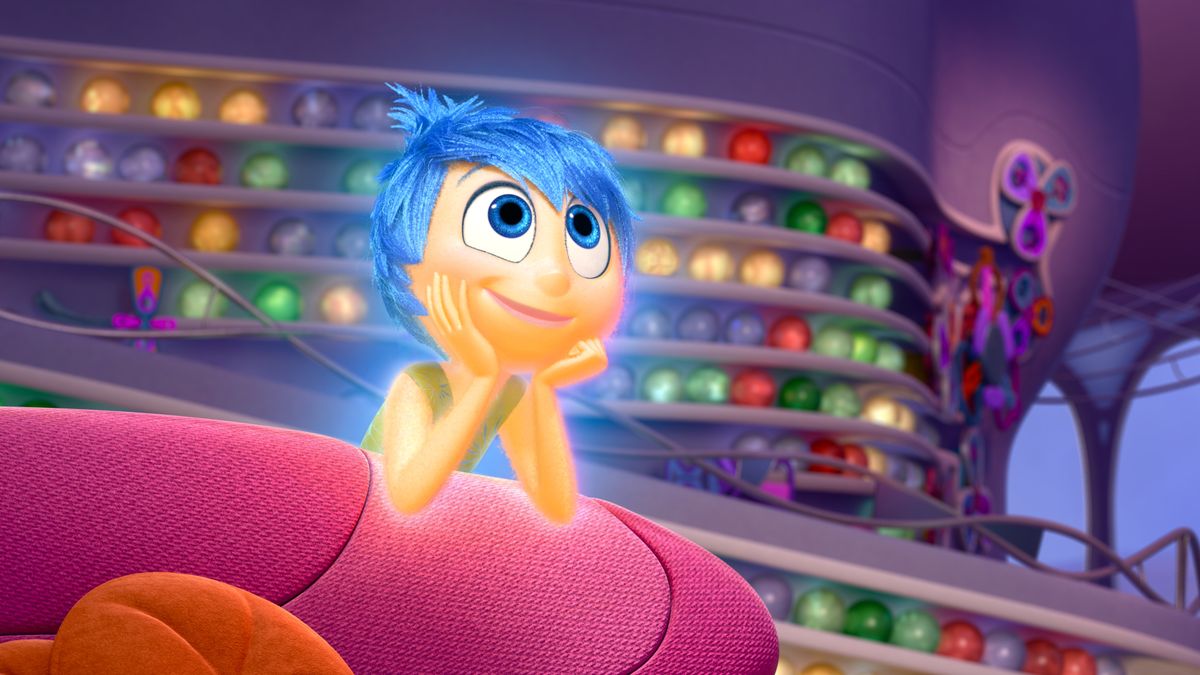Pixar’s emotional comeback

It’s not the laughs that tell us Pixar has returned to form with its latest offering, “Inside Out.” It’s the heart.
Here’s a children’s cartoon that deals with emotions, from temper tantrums to sadness spirals. It teaches kids, with animation and jokes, how every emotion has its place and its value.
As in “Toy Story” and “Up,” it is wistful about the loss of childhood, and how the most powerful memories can be the sad ones.
We meet the five emotions that will drive Riley at birth. Joy (Amy Poehler) is Riley’s first experience of the world, what she feels as she opens her eyes to her parents (Diane Lane, Kyle MacLachlan).
But Sadness (Phyllis Smith of “The Office”) is close behind, adding a glass-half-full to everything the kid feels for the rest of her life.
Anger, voiced by Lewis Black, has most of the laughs – tirades, meltdowns in the classic Angriest Man in Comedy style.
Then there’s Fear (Bill Hader), the ninny, and Disgust (Mindy Kaling), the snob.
Joy, smiling, upbeat and well-meaning, runs the show. She wants to give the kid happy thoughts, even after the family moves from Minnesota and her friends to San Francisco, where Mean Girls rule.
Sadness compulsively pulls Riley into disappointment, nostalgia and regret for what she’s lost.
“Crying helps me slow down and obsess over life’s problems,” she whines.
Fear frets over what might go wrong, and Disgust tries to narrow Riley’s choices so that she fits in.
There’s an uneasy balance of Core Memories, which Sadness threatens to tip over at any moment. When she does, she and Joy tumble out of the Control Room, the nerve center where decisions about how to react are made. Their efforts to get back via a Train of Thought take them from the memories of Family Island past Abstract Concepts and into the Subconscious.
The characters are simplistic and the quest only mildly diverting. It’s the film’s fanciful treatment of the workings of the mind that delight here – orbs of memory, short-term and long-term, husband-and-wife Control Rooms that play with “Men are from Mars, Women are from Venus” in their contrasts.
When you find yourself tearing up at a long lost Imaginary Friend (Richard Kind), you’ll realize just how much this film is on the right wavelength.
“Inside Out” isn’t designed to sell toys, like much recent Pixar products. It isn’t an out-of-ideas sequel. It’s a wholly original child’s-eye-view of emotions and growing up, a demanding movie for small children and a rewarding and touching one for their parents.
And there’s a stunningly simple and romantic short, “Lava,” a love story between volcanoes set to a Hawaiian ukulele tune, that nicely sets the table for all this, a reminder of what the Pixar brand is supposed to be.